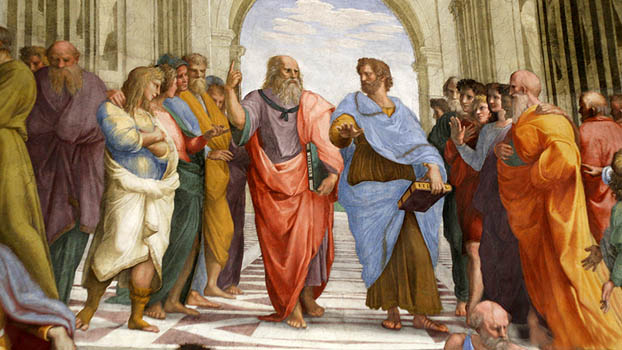Classical edn is countercultural, It’s time to bring it back

(Continuation from previous day)
Matthew D Walz
Education in Three Dimensions
Simply put, conventional education is flat; it has become two-dimensional. Conventional education attempts, on the one hand, to transfer (perhaps “download”?) information to students for the sake of passing tests and, on the other, to produce skills in students for the sake of getting a job. Such activities are not humane—nor, it turns out, even very human.
What is information, after all? What are skills? Information is mere truth, naked truth—which usually means the ugly truth. Along similar lines, skills are mere arts, naked arts—which usually means tedious arts. Skills are arts bereft of virtue because they have been separated from the discipline of contemplation.
By contrast, classical education enables students and teachers to garner information and skills within their proper and elevating contexts. Students and teachers alike, as human beings, are called to seek beauty-clothed truth that calls them to goodness and to develop virtue-infused arts that grow out of contemplation.
It is no wonder, then, that students and teachers alike respond to the high calling of classical education. It fans that divine spark within each of us, that potent image of God stamped deeply in our souls. Teachers know, at least implicitly, that students are called to something greater than merely passing standardized tests and finding a place in the workaday world. Students themselves also know, at least implicitly, that they are called to something greater. And so when the students whom teachers are blessed to teach ask for bread, teachers ought not to give them stones; they ought, rather, to give them real, wholesome bread. And when students ask teachers for a fish, they ought not to give them a snake; they ought, rather, to give them real fish.
At Home in the Church
I daresay, moreover, that a Catholic context is the one in which classical education is most at home. This is not to say, of course, that the church invented such an education. Historically speaking, that is simply not true. One need only read Plato’s Republic to learn this. Yet classical education finds its fulfillment in a Catholic context—a context framed by faith, hope and charity, a context in which students and teachers encounter Christ both sacramentally and in one another. For in a Catholic context, reason, strengthened by classical education, can be paired with faith and the support of the sacraments, and together these two wings bear us toward the contemplation of truth, helping us to achieve the full truth of our very selves.
Recently we celebrated the 20th anniversary of St John Paul II’s “Fides et Ratio,” an encyclical written to demonstrate the “necessary relationship” between faith and reason. Faith and reason complement each other. Faith sets the sights and aspirations of education higher than Plato could ever have imagined, while the exercise of reason in relation to faith helps to keep our feet on the ground, so that what we believe remains humanly fulfilling and neither stands in opposition to our nature nor suppresses it.
Matthew D Walz is an associate professor of philosophy and Director of the Philosophy & Letters and
Pre-Theology Programs at the University of Dallas as well as the Director of Intellectual Formation at Holy Trinity Seminary.




